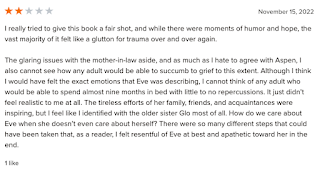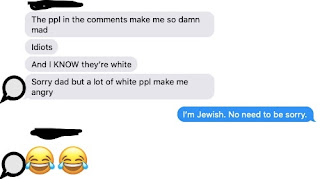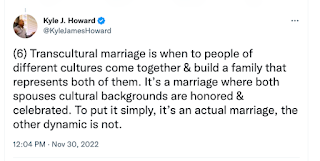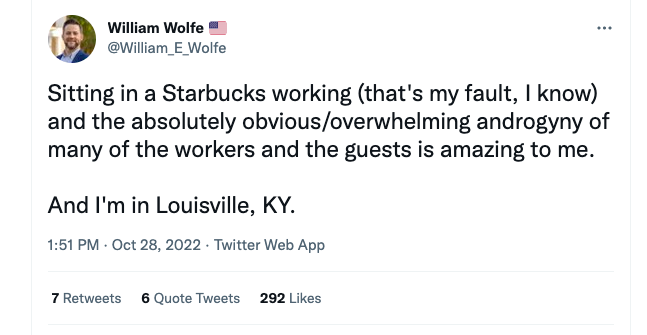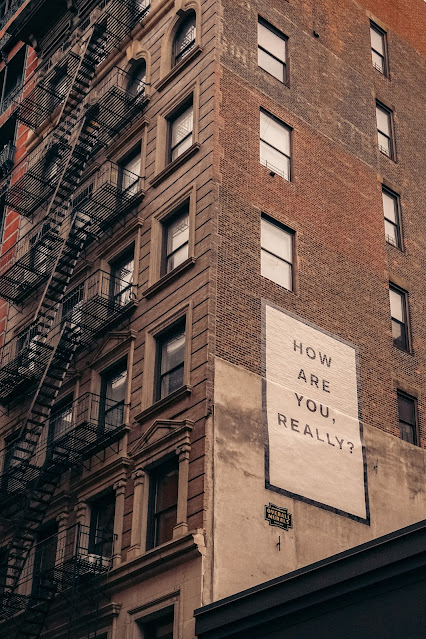Thanks for continuing to read by blog and my stories, internet stranger. This next story is from several years ago, and it was part of an unfinished novel involving a kind of ensemble cast of characters. At the time, I was trying to write a YA novel, which really isn't my style, as well as experimenting with tone and voice. So this was a chapter focused on one character, Norman, who is one of those young men who is really cool in his own right, but very few people know it because he's very reticent and slow to make friends. I do like it, but I'm not completely sure it works, and I can name at least five journal editors who agree with me on that note. Still, hope you like it. If this one gets a reaction, I'll post some of the other chapters as well.
"Cayenne Cupcakes"
By Jeff Harrison
I mean, I know I can’t cook, all right, but those cupcakes could have ruined my life. The only reason I took cooking class sixth period anyway is because my mom made me, something about learning to fend for myself and after all my father cooks for a living for goodness’ sake. That, plus the fact that Eleina was in the class.
So maybe I was distracted a little when Ms. Deneuve showed us how to mix the batter, but I’ve never had a crush on a girl like this before. Eleina, not Ms. Deneuve. So maybe I forgot to write down one or two of the ingredients. Still, I know cayenne pepper wasn’t one of them.
And who puts the shaker of cayenne pepper back in the cupboard without screwing the lid on anyway? I had a hard enough time with this assignment knowing I’m missing something. On top of that I don’t even like dark chocolate at all. I like milk chocolate, if anything, and barely even that. Just never been one for sweets. Anyway, I didn’t have to worry about that with these particular dark chocolate cupcakes, because while I was mixing the wet and dry ingredients together, I reached for the nutmeg, because I’m pretty sure that’s what Ms. Deneuve said, and instead I knocked over the cayenne pepper. Right into the cupcake batter. With the top unscrewed.
So basically I was looking at dark chocolate cupcake batter with nearly a full five ounces of cayenne pepper in it, slowly sinking into the black goo, getter wetter and darker as it went down. If I had been a lesser man, I would have cried.
The thing is, sometimes I feel like I fail at everything I try. Most of the time, really. My dad would say that’s not true, that the truth is I don’t really try, or that all I do is try. He would say that I bail out whenever things get a little hard or confusing. I guess he’s right, although I would never tell him.
Take the whole thing with Eleina, for instance. Dad would say, “Just walk up to her, son, look her in the eye, smile, and start talking.” He’d tell me she’s a girl, no one to be afraid of. “But don’t let the conversation go on too long, and don’t let it end without asking for her number.”
It’s not that easy for all of us. Dad’s always been the kind of guy who could do that. He laughs at danger. He smirks at adversity. He chuckles at peril. But Eleina is not the kind of girl you just walk up to. She must have a dozen or more guys trying to get at her like that every day. A girl like that, you’ve got to get on her radar first. Hence the cooking class. Problem is, by the time we were up to making the cupcakes, my plan wasn’t working so well. She still thought my name was Nelson. It’s Norman. This was our fourth class together. Not our fourth session of class. Our fourth class: Freshman English, Biology, World History, and Introduction to Culinary Arts.
So, when the cayenne pepper fell into the batter, I was really ready to drop out of the race. I mean, all I need is more failure and embarrassment in front of her. And starting over was out of the question. It was already after eleven o’clock. I was planning to put them in the oven for twenty minutes and let them cool overnight so I could get some sleep.
I took the bowl of ruined batter back to my dad’s office, where he sat checking his email. I figured maybe he knew a way to get the pepper out of the batter and still be able to save some. As soon as I came in, he turned around and saw the bowl, saw the pile of spice on top of the batter, and sniffed the air with his eyebrows pushed together.
“Is that …?”
“Cayenne pepper.”
“But weren’t you making …?”
“Dark chocolate cupcakes.”
Dad looked at the bowl for a second. Then he laughed right in my face. A loud, throaty laugh, too.
“Thanks, Pop.”
“Sorry,” he said, and straightened up a bit. Then he started laughing again.
“Listen, can I get this stuff out of the batter or not?”
Dad’s laughter slowed down. “You’re not getting that out, kid. No way.” He looked on as the last of the pepper turned from red to black as it sank in the batter. “You gotta start over.”
“I don’t have time to start over, Dad.” I put the bowl on the desk next to him and leaned back hard against the wall. “Forget it. I’m dropping the class.”
Dad just shook his head in that disappointed-father way. “Son, that’s not the way to be.”
“Well, what am I supposed to do with this mess?” I really didn’t mean to raise my voice, but once it came out that way, I had to stick with it, so I added a stupid flail of the hands for emphasis.
Dad settled back in his chair, put his hands on the armrests, looked at the bowl for a second, and then looked me dead in the eye.
“Bake it.”
I practically jumped off the wall. “What?” I pointed at the batter as if he hadn’t seen it. “You seriously want me to take chocolate cayenne pepper cupcakes to class tomorrow? I won’t have to drop the class – Ms. Deneuve will kick me out!”
“Son, cooking is a lot like life …”
“Yeah, cooking is always a lot like life …”
Dad stared me down with his eyes narrowed and his head cocked to one side.
“Sorry.”
“You’re not always going to have the things you need to make what you want. Master chefs don’t wish they had the ingredients to make a good meal. They make great food with the ingredients they have.” He leaned forward, and his eyes opened a bit. “Take what you have, and make it work.” He turned back to his computer and began scrolling through his inbox.
I looked at the back of his head while I picked up the bowl. I hate it when he’s right. I mean, I could either throw it away, or bake it and then throw it away. The only difference would be the twenty minutes it took to make and the chance that it might not be that bad.
“I’ll try it,” I said as I walked out.
“Hey, Norman.”
I turned back in the doorway. Dad was still looking at the computer screen, typing away.
“Put more chocolate in it.”
After I turned on the oven, mixed the ridiculous cupcake batter, and prepared the pans, I looked at my leftover chocolate, a little over a cup. I figured I could mix it in the batter, but unless I melted it first, it would stay in chunks. The same time I was thinking that, a voice in the back of my head said, “Is that really a bad thing?” The voice sounded remarkably like my dad’s.
So, I shrugged my shoulders, dumped the chocolate into the batter, and stirred the chunks in. Then came the longest twenty minutes of my young life. I was already tired, and more than a little stressed, and I just knew the cupcakes would be horrible anyway.
When I took them out and started spreading them out on the cooling rack, I said to myself, “At least they don’t look bad.”
Twenty-four cupcakes, four more than I needed, sat there on the counter, ready to decide my fate. I had to try one, even if they weren’t cool yet, just to see if I should toss them out and go to bed.
From the first bite, it tasted weird. But not bad weird. They didn’t taste like chocolate, that’s for sure. But then they didn’t taste like cayenne pepper either, which surprised me. They were certainly spicy, but not pepper-spicy, more like apple cider-spicy, or pumpkin pie-spicy, but with a slight kick in the aftertaste. I kind of liked them.
Confused, I took one to my dad.
“Can you try this?”
“Is it bad?”
“I don’t know.”
Dad looked at me, holding the cupcake. I’m sure he thought I was playing a prank on him.
“Okay,” he said, and slowly reached out and took the cupcake, keeping his eye on me the whole time he was unwrapping it and biting into it.
Then he looked at the cupcake, turned it over in his hand, and took another bite.
“These are the ones you just made?”
“Yeah.”
“Wow. I thought they’d be terrible!”
I stared at him. “Then what was all that about life and doing the best with what you have?” I snapped.
“No, that’s all true,” he said as he took another bite, “but I still thought the cupcakes would taste like crap.”
“Thanks, Pop.”
“But they’re good.” He finished off the last bite. “Do you remember how you made them?”
“Yeah,” I really didn’t want to smile, because I was still a little mad, but they did taste good. “Do you think you could put the frosting on them for me, when they cool off?”
“You know, I wouldn’t even bother. Might mess them up.”
“Yeah.” That actually made sense. “Thanks, Pop.”
Still, I was nervous about bringing them in the next day, especially when my cupcakes were the only ones on the table with no icing. For a second, I felt like I should have done it before I left the house, but I tried not to show it.
The thing is, out of fifteen sets of chocolate cupcakes, mine were the only ones that were different. And everyone said they were the best, even Ms. Deneuve.
“You changed the recipe?”
“I’m not really one for sweets.”
She gave me an “A+” for them, which, by the way, saved my grade for the quarter.
The best part is that Eleina asked me about them towards the end of class. “You have to tell me what you put into them, Nelson.”
“It’s Norman, actually, and the secret ingredient is – cayenne pepper.”
Eleina’s whole face opened up and twisted into a look of absolute shock, but somehow still pretty. “No way! How did you think of that?”
“It was an accident.” I told her how it happened, minus the stuff with my dad, and she laughed out loud, her eyes glistening as they teared up a little.
“Oh my gosh, that’s so funny.”
“Yeah.” I heard my dad’s voice in my head, pushing me forward. “Listen, Eleina, can I have your number, maybe call you sometime?”
All of the laughter and brightness washed out of her face, leaving only pity behind. “Um,” she bit her lip, “sorry, I have a boyfriend.”
“Right,” I said, scrambling to get my thoughts together. “Of course, I knew that.”
I didn’t know that.
“I was just thinking I could call you next time we have an assignment like this for cooking, you know? Get some advice from someone who knows what she’s doing.”
Her eyes opened up and she nodded. “Oh, yeah.” She kept nodding but the pity was still there in her face. “Yeah, I’d rather not.”
She gathered up her books and things like the kitchen was on fire and headed for the door. I think I waved or something.
She stopped and turned to me before she closed the door behind her. “The cupcakes were really good, Norman. I can’t wait to see what you make next.” And then she was gone.
And I couldn’t help feeling extremely … satisfied. I mean, this was certainly not the way I pictured it going, getting rejected. And harshly too. But then again, I got rejected by Eleina Jackson. A lot of guys can’t even say that. And even though she turned me down cold, at least I accomplished something. After all, she knows my name now.


